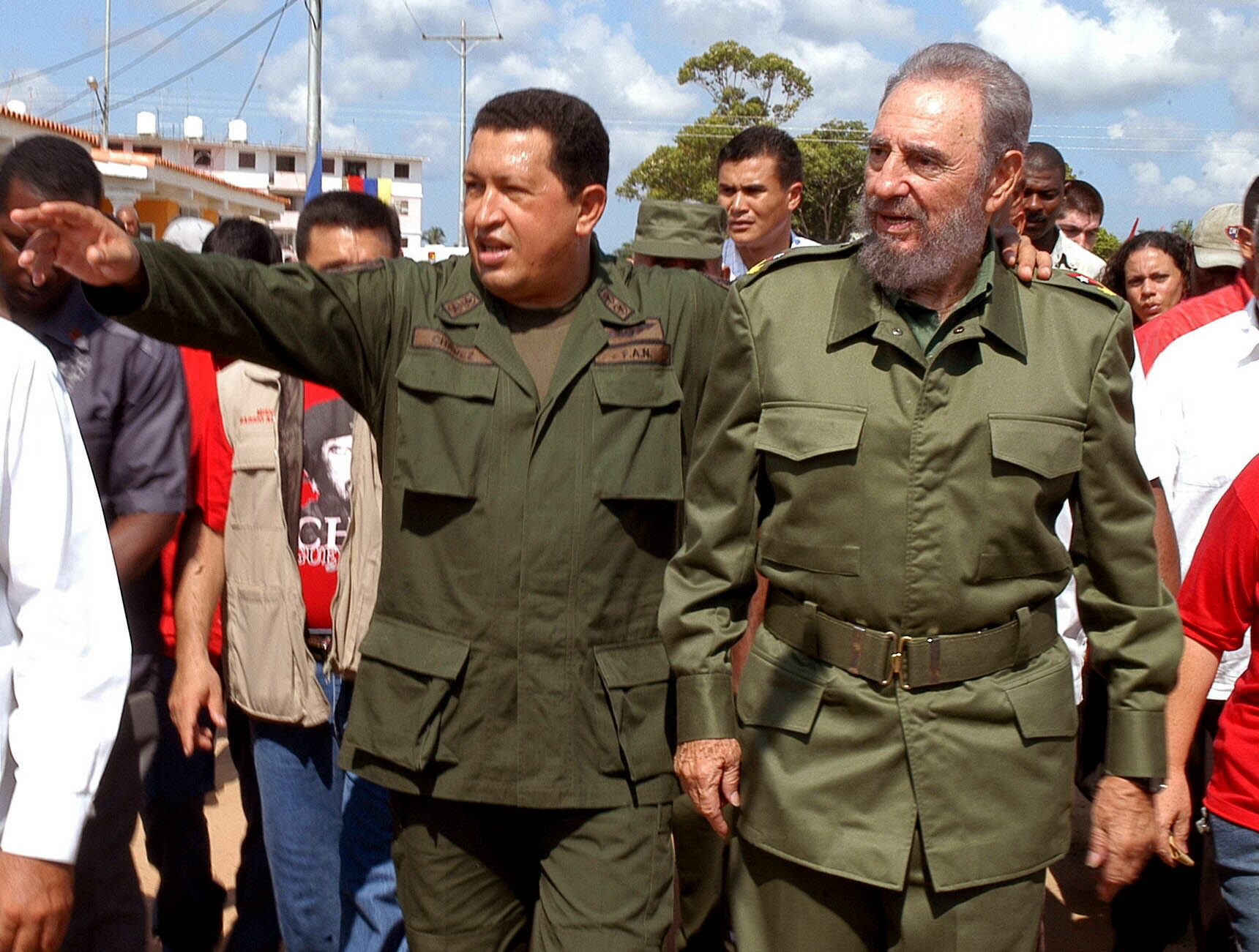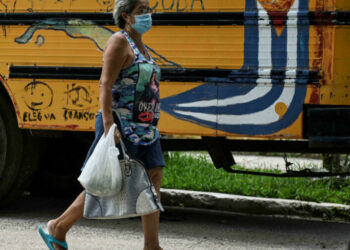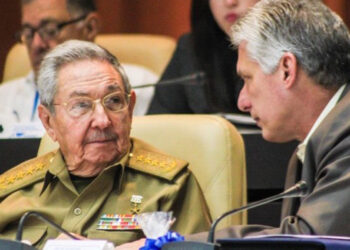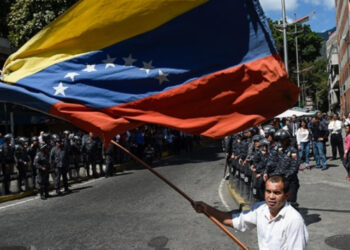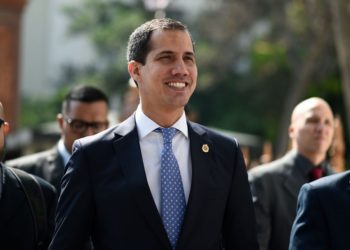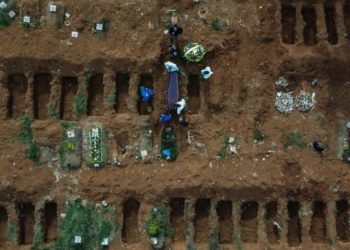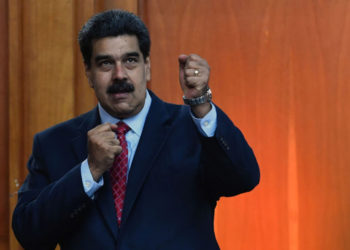As the crisis intensifies in Venezuela, policymakers in Washington, D.C., continue to explore the idea of a regional solution involving other Latin American countries. This idea dates back as early as 2005 when the Bush administration unsuccessfully pressed Brazil to intervene. Mexico, Argentina and Chile have been among the prospects more recently.
Largely absent from discussions of a regional solution has been the Latin American nation with the most influence on Venezuela: Cuba. While Washington is just beginning an uncertain new chapter with Havana, Cuba continues to solidify its tight embrace with Venezuela.
In many ways, Venezuela today is reminiscent of Cuba in the 1990s. Like Cubans then, Venezuelans now face crippling food shortages, currency manipulation, and police-state repression. A key difference is the massive protests which Venezuelans have been staging against their government since April of this year – and which have become the biggest challenge to Nicolas Maduro’s oppressive regime.
Already in the 1950s, Castro saw the great potential of Venezuela and its oil wealth as a means to support his revolution in Cuba and spread his left-wing ideology across the continent.
Venezuela was the first country that Fidel Castro visited after the Cuban Revolution in 1959. He traveled to Caracas only two weeks after he overthrew Cuba’s right-wing dictator Fulgencio Batista. In his first international speech, Castro told a cheering crowd in downtown Caracas: “It is for me more emotional to enter Caracas than it was to enter Havana because here I have received everything from those who have not received anything from me.”
Castro was referring to the money, arms and ammunitions that Venezuela had sent him to support the Cuban revolution. Venezuelans were sympathetic with the situation in Cuba; just one year earlier they had deposed their own right-wing dictator Marcos Pérez Jiménez.
However, while Venezuela soon transitioned into one of Latin America’s only democracies at the time, Cuba evolved into a communist dictatorship led by Castro. Amid growing Cold War polarization, Venezuelan President Rómulo Betancourt ended relations with Cuba in 1962.
From 1962 to 1974, Cuba provided weapons and military training to Venezuelan guerrillas. In response, Venezuela petitioned the Organization of American States to impose sanctions on Cuba in 1964. In May 1967, tensions intensified when a group of Cuban officers sent by Castro was intercepted in Venezuelan territory.
Relations between the two countries resumed in 1974 under Venezuelan President Carlos Andrés Pérez. At this point, with the economic and political protection of the Soviet Union, Cuba had backtracked on plans to spread revolution across the continent. Meanwhile, following the OPEC crisis of 1973, Venezuela enjoyed record oil revenues.
After global oil prices had crashed in the 1980s, Venezuela’s economy tanked and political turmoil intensified. When Hugo Chávez attempted a coup-d’état in Venezuela in 1992, Castro denounced it. But as soon as Chávez was released from prison two years later, he was invited to Havana.
“For me, Castro is like a father. Like a beacon,” Chávez told The New Yorker in 2008. In Castro, Chávez discovered a living hero to give political legitimacy to his revolution. In Chávez, Castro found the perfect ally in its efforts to rescue the Cuban economy, which was in shambles after the disintegration of the Soviet Union in the late 1980s.
From the moment Chávez became president of Venezuela in 1999, the cooperation between the two countries gradually increased. While Cuba provided manpower for social programs covering literacy, health, housing and education, among others. Venezuela provided cheap oil, enabling the Cuban regime to remain solvent.
Following an attempted coup-d’état orchestrated from the U.S. against Chávez’s government in 2002, Cuba started providing political advice to the Venezuelan president. In his speeches, Chávez started to sound more and more like Castro.
As cooperation between Venezuela and Cuba deepened and oil prices went up, Castro’s influence on Chávez increased. As a result of this cooperation, the two countries created various regional organizations including a politically oriented trade bloc (ALBA), an energy alliance (Petrosur) and a TV propaganda arm (Telesur).
Several left-wing governments across the continent supported these organizations. Bolivia, Ecuador, Nicaragua and smaller Caribbean nations joined the club in exchange for political support and cheap access to Venezuelan oil. Castro’s long-lasting dream of spreading his revolutionary ideology across the continent seemed to have started to come true.
But in 2013, Chávez died from cancer after being treated in Havana and was succeeded by Cuba’s favorite, Nicolás Maduro. Global oil prices began a steady decline, and Maduro proved far less popular and skillful than Chavez. Venezuela fell deeper and deeper into chaos. Despite his country’s increasing hunger crisis, Maduro has continued providing Cuba with cheap oil.
The number of Cuban advisors present in Venezuela when Maduro took office is estimated at 45,000. They range from doctors to soldiers. In recent months it has been evident that Cuban assistance also includes police and intelligence support to control and repress demonstrations.
During this year’s protests, Venezuelan students reported that they were arrested and tortured by masked “police officers” with Cuban accents. Top Venezuelan government officials, including Maduro, are currently protected by Cuban bodyguards. Although Venezuela’s government uses strident anti-imperialism as its political flag, the regime depends on foreign patronage from Cuba at many levels.
As Venezuelan security forces killed more than 160 protesters in recent months and staged a fraudulent election to install a Cuban-inspired assembly to rewrite the Constitution, the Trump administration imposed sanctions. Instead of a crippling oil embargo, Washington chose a gradualist approach of economic sanctions on prominent Venezuelan officials including Vice-President Tarek El Aissami and Hugo Chávez’s brother, Adán.
In recent months, the prospect of a regional solution has returned, but with Cuban Americans in the lead. In Miami, the Cuban-American community sees itself reflected in the plight of the many Venezuelans who have fled to South Florida. In Washington, two of the most vocal U.S. politicians on Venezuela are Cuban American: Senators Marco Rubio and Ted Cruz. In dealing with Venezuela, Washington would need to consider taking effective action against Cuba as well as Venezuela.
Disclaimer: The views and opinions expressed here are those of the author and do not necessarily reflect the editorial position of The Globe Post.

